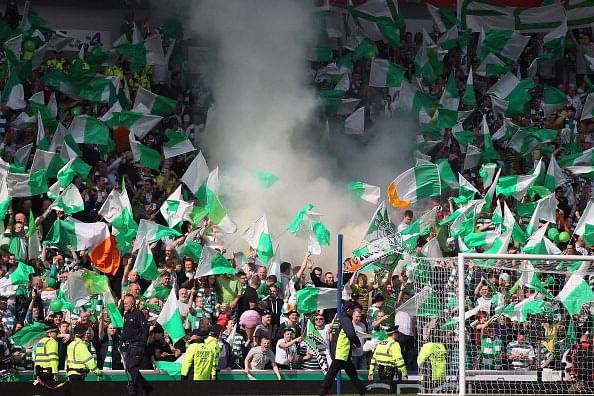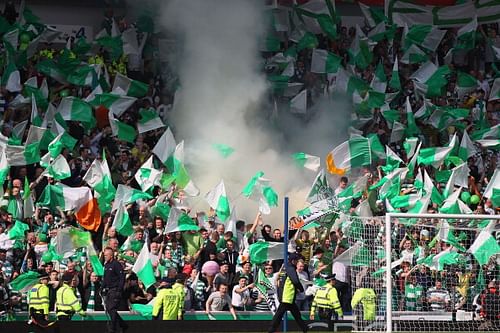
The Derby: An eternal treat for the fan, a weighty test for the footballer

Derby matches bring out the best (or worst) in fans
The lasting allure of a derby is one of the many captivating treasures in the overflowing soul of a football fan. Burdened by expectation and bouts of nerves, it is a captious game for the men on the field. A duel between cross-town rivals, somehow, has a magical aura that often transcends the actual context of the game being contested. It is a word that arouses passion, even if it were just two men squabbling over a little etymological detail.
Depending on your source, the term could have come from horse racing or from that chaotic annual tussle between two sides in the village of Ashbourne in Derbyshire. Either way, the implications of it are never more intense than when it is about a much awaited football game. Legends have been built and told around cities, scripted on the heroics of players toiling for one part of a town against the other.
The passion around a derby is brewed on the strength of several powerful ingredients – culture, religion, class, the weight of history and a myriad other narrow considerations that serve to spice up the excitement around a game. Often, the clubs involved might only be fighting out a lower level league game. The fans though live in anticipation of the two games – home and away – as if their universe of aspirations and happiness were to be determined by how their team performs in the derby.
The gravity of a derby is best exemplified by the rivalry between the Celtics and the Rangers. The residents of Glasgow indulge in a bout of caustic jingoism every season, surrounding the acerbic contests between the two Old Firm teams. The rivalry is so intense that a recent paper published by researchers of the University of St. Andrews suggests that there is “compelling evidence” of a “statistically significant” spike in domestic violence following games between the two big rivals.
The team of four researchers studied 21 games between 2008 and 2011 and found evidence that suggested a link between the games and reports of domestic violence. The intensity of the rivalry between the two clubs even inspired a legislation in Scotland – the Offensive Behaviour at Football and Threatening Communications Act was instituted in March 2012, primarily to address unruly behaviour by football fans. The act empowers the police to take measures to counter sectarian acts fuelled by fanatic spectators, who can lose perspective under the mixed influence of alcohol and the heady thrill of watching top flight football.
The sociological differences between fans of Celtics and Rangers – one club supported primarily by Protestant Ulster Scots waving the Union Jack and another by Catholic Irish Scots holding aloft the Irish flag – helps explain the fascination for the derby as an avenue for proxy expression of deep seated dislike.